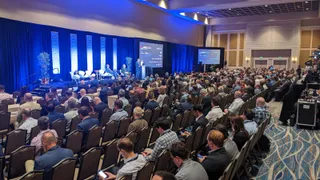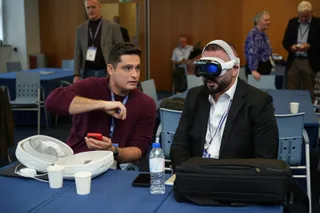Healthcare Visionary from Liberia Wins Coveted TED Prize
Contact Our Team
For more information about how Halldale can add value to your marketing and promotional campaigns or to discuss event exhibitor and sponsorship opportunities, contact our team to find out more
The Americas -
holly.foster@halldale.com
Rest of World -
jeremy@halldale.com
Raj Panjabi, who fled to the United States to escape civil war in his native Liberia, eventually returned to his shattered homeland to find rural communities desperate for adequate healthcare.
The trained physician co-founded Last Mile Health in Liberia, which aims to recruit, train, equip and manage people in communities to serve as local healthcare workers.
He spoke about his organisation yesterday at the TED Conference famous for “ideas worth spreading,” sharing his dream of revolutionising healthcare.
The innovators, entrepreneurs, influencers, and artists known as ‘tedsters’ picked his innovative healthcare project as the winner of a coveted million-dollar TED Prize awarded each year to a visionary idea.
“It has always been true in history that illness has been universal and access to care has not,” Panjabi said during an interview before speaking to the TED audience late yesterday.
“This is a story of people in rural areas around the world,” he said.
Seed money Dr Panjabi used to start Last Mile Health came from cash he had received as a wedding gift.
The operation has grown to provide care for tens of thousands of people, and win support from Liberia’s health ministry, according to TED.
During the Ebola crisis, Panjabi’s organisation supported the Liberian government’s response, training more than 1,300 health workers on infection prevention and control at clinics.
“As global citizens, we’re living in a tumultuous moment,” said TED Prize director Anna Verghese.
“Raj understands more than anyone that disease adheres neither to borders nor to nationalities.”
A healthcare army
Panjabi wished for help creating a global academy, recruiting the “largest army of healthcare workers the world has ever known.”
People with middle- or high-school level educations would be hired from their communities, then given training, medicines and support to provide healthcare to neighbours.
“The challenge is, we can’t do that without technology,” Panjabi said.


